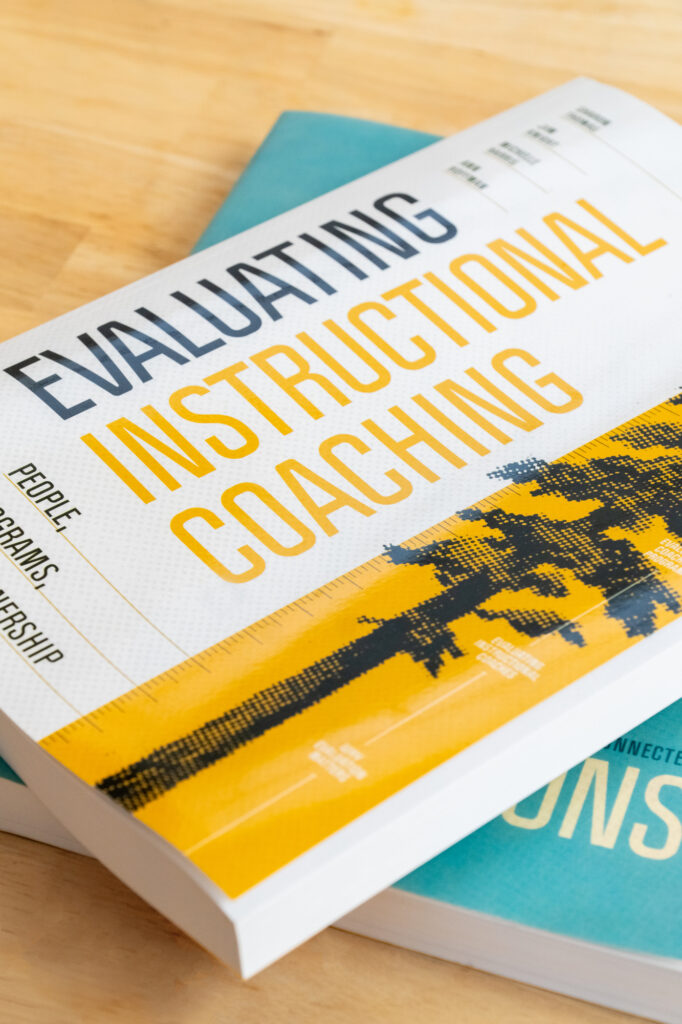Lisa Lande is an advocate for teachers and students around the world. She’s the director of field services at the Quaglia Institute for School Voice and Aspirations. Along with Russ Quaglia, she is co-author of Teacher Voice: Amplifying Success and also a co-author of Engagement by Design: Creating Learning Environments Where Students Thrive. Lisa is a passionate and eloquent advocate for teacher voice, and as part of the Quaglia Institute team, she has provided professional development services to educators around the world.
I’m thrilled and honored that Lisa is presenting at this year’s TLC, and even if you can’t attend the conference, I know you will learn a ton from Lisa’s comments here. I know I did.
JK: How did you come to write about voice?LL: A number of years ago I was quite fortunate to meet Dr. Russ Quaglia and discovered that we had a shared passion for fishing and, more importantly, a shared passion for helping both students and teachers develop their voice, with the goal of giving students – and their families – the best experience possible in schools. Russ helped me connect with other professionals with the same commitment. He helped me explore opportunities to foster voice, including writing with him; which has been a true privilege.
JK: Tell us about your publications.LL: Teacher Voice was the first publication we co-authored, which explores amplifying teacher voice through the lens of the Quaglia Institute’s three Guiding Principles: Self-Worth, Engagement, and Purpose. Our focus on these areas has been driven by the voices of students and teachers from both survey data and years of field work by the team at the Quaglia Institute.
The Guiding Principles are intentionally ordered, with first cultivating Self-Worth by establishing positive relationships and letting students and teachers know that they are valued; then Engaging them in a meaningful way with a Purpose: “Why are we learning this? How does it apply to my life? How does it lead to me contributing to the greater good of my community, and the world?”
The work of the Quaglia Institute began with a focus on student voice. When students experience Self-Worth in schools, they are six times more likely to be academically motivated. When they are Engaged, we see a huge increase, with students being 14 times more likely to be academically motivated. And with regard to Purpose, students are 17 times more likely to be academically motivated when they see a purpose in what they are learning and how it applies to their life.
The Institute then began to really dig in to how this same framework applies to teacher voice, which led to the Teacher Voice book. One of the things we are always super clear about is that we are not a prescribed program to be followed step by step. Instead, the aspirations and voice work is built on a framework; it’s a way of being, a way of thinking. We work on implementing conditions that lead to greater Self-Worth, Engagement and Purpose for everyone in the school community. Of course achievement measures are critical, but we also focus on many other things that make us tick as humans and people within schools.
When engaging in field work, we see the role of coaches as being critical. When coaches think, “How can we help teachers feel more value in terms of their voices, their decision-making, and their communication?” opportunities for supporting teachers open up and the impact can be enormous. Administrators and coaches must provide opportunities for teachers to cultivate their voice skills so they are better equipped to foster these same skills within their students.
Most recently, Russ and I had an incredible opportunity to collaborate with Doug Fisher, Nancy Frey, and Dominic Smith on a book called Engagement by Design. This work explores engagement by looking at the intersects between the teacher, the student, and the content. There are many excellent books out right now on the topic of engagement. We have tried to come at it through the lens of what would be most useful for teachers, packing the book with practical suggestions, instructional strategies, and a series of resources and 15 short videos that coaches can use when they are working with teachers. We have taken a note from your work regarding the importance of videos and actually seeing what amazing classroom engagement looks like in action. A very powerful piece of Engagement by Design is being able to watch these videos and reflect on how that might apply to improving engagement in the learning process.
JK: I was really impressed with the whole package, and I love the way you integrated the research on voice with engagement. What were the three things involved with voice that you mentioned earlier?LL: Our three Guiding Principles: Self-Worth, Engagement, and Purpose. Self-Worth is about establishing a sense of belonging, which is about belonging to a community while also maintaining your individuality. This is particularly important for teachers as they want to belong to a school community, but at the same time they do not want to be stripped of their individual skills as a professional. They want to know that they are a valued member of the school—that they are embraced by and contribute to the teams they collaborate with, the committees they participate on, and their colleagues and administrators in staff meetings—that they are part of the “whole” while being honored for the individual skills they bring to the table. The second part of Self-Worth is heroes, which is about identifying the heroes in your everyday life, the people you can reach out to, not only when you need help or are struggling, but when you want to share your successes. We encourage all teachers to identify someone in their building or their direct professional community … mentors, coaches, colleagues … that they can really trust and turn to when they need help, a sounding board, or someone to comfortably share their successes with.
Interestingly, we often see that individuals who receive Teacher of the Year or other awards end up feeling alienated, as their colleagues may think, “Oh, so now you think you’re really important!” We have not yet made it safe in many schools to share our failures or to be successful, whether as students or teachers. It should be okay for a teacher to say to the teacher next door, “I just tried this new lesson, and it was amazing. I’d love to tell you about it!” Traditionally, teachers are almost humble to a fault. And of course, it is also important to have people we can go to when we struggle and need support.
Finally, within Self-Worth we work on cultivating a sense of accomplishment in students and teachers by celebrating a wide variety of achievements in learning and life.
JK: So how do you break down the Guiding Principle of Engagement?LL: Within Engagement we first focus on fun and excitement. It is important to realize that fun does not have to be a bad word–even in high school (laughs)! In fact, fun should be a condition of engagement that we see in all classrooms. It has been interesting to listen to students address the concept of fun and excitement in focus groups. As teachers, we tend to think that kids are going to describe “fun” in class as playing games or the teacher making jokes all the time, but in reality, when students talk about a classroom that’s fun and exciting, it has much more to do with the teacher’s passion. Students are very perceptive. They know when teachers want to be there and when they don’t, and they know whether a teacher thinks a topic is boring or interesting. For example, I listened to a student talk about a science teacher who was able to make the topic of dirt the most interesting thing ever because of the teacher’s passion and approach to learning. That’s really what students are looking for. Of course, they also love games and learning through fun and engaging activities, but it is not about teachers being comedians in class; it is about that internal passion that a teacher brings to the class—the passion to be in the classroom, connecting with students and engaging them in learning.
Another condition of meaningful Engagement is curiosity and creativity, rooted in the work of Csikszentmihalyi and his concept of flow—losing track of time and space because you are totally immersed in learning and what’s happening in the classroom. When we talk to teachers and coaches we can all recall days when class ends, and teachers and students alike think, “I can’t believe the bell just rang! That class flew by!” And there are also days when students and teachers are constantly checking the clock and it just goes tick, tick, tick at a snail’s pace. Our goal is to cultivate curiosity and creativity to the point where we get lost in learning, where we are fully immersed in that flow experience.
The final condition we work on within engagement is spirit of adventure. This is about a willingness and excitement to take healthy risks; being excited to try new things, even if you are might not excel. We hope students and teachers will view learning as something we get to do rather than something we have to do.
JK: We have covered Self-Worth and Engagement, what about Purpose?LL: The third Guiding Principle is Purpose. We first explore the condition of leadership and responsibility which is about making good decisions and taking responsibility for your choices. We are looking to redefining leadership for both students and teachers so they are not just thinking in terms of traditional “formal” leadership roles. For example, we often hear students say, “leadership is for students who are on student council, or captain of the football team.” And teachers say, “leaders are the people who are on the site-based management team, department chairs, or grade-level team leaders.” True, those are forms of leadership, but leadership and responsibility are things that everyone embodies. We all have ways by which we can take on leadership and be responsible to our school community and to ourselves as learners, and as teachers. It does not require a formal role or title to be a leader. It does require the willingness to make decisions and take responsibility for those decisions. One can be a leader by example, by the decisions they make on a daily basis in and outside of the classroom.
The final condition is confidence to take action, which is really where the rubber meets the road. It is about setting goals and taking the steps that are necessary to reach those goals. If you have Self-Worth, are Engaged in the learning process, and you have Purpose in what you are doing, then you have the confidence to take action upon those beliefs to make the school, the community, and the world a better place.
Whew! That was a lot of information. There is an excellent summary of the Aspirations Framework on our website that would be great to check out if anyone wants a more concise overview.
JK: Does your set of principles apply to both students and teachers?LL: Yes, absolutely! When Russ and I started collaborating around the concept of teacher voice, we initially wondered, “Do we need a separate framework? Are there other things that we need to include for teachers?” But the framework held true. That said, there are certain things that we specifically work on with teachers, such as communication.
The Institute offers a teacher voice survey and has accumulated a fairly large data base with responses from over 30,000 teachers. Only 51% of teachers report that they experience effective communication in their schools. I am sure this comes as no surprise to you with all the work you have done in this area. In fact, we often refer teams to your book Better Conversations which had a significant impact on the way we approach communication in schools, and in life. What has particularly stuck with me is your concept of life-giving conversations, which seems to really resonate with the teachers we work with. They begin to recognize that too many of our conversations break down because they are an energy drain; but that each individual has the ability to transition those conversations to instead be life-giving.
Another part of effective communication we are exploring and working on is being comfortable asking questions. According to our data, only 69% of teachers report feeling confident asking questions in staff meetings. Similarly, only 63% of students report feeling confident asking questions in class. We have found that the concern over asking questions has little to do with what the administrator or the teacher might think of a given question; it is the fear of what our peers will think of the questions we ask. This again speaks to the need for an improved sense of belonging within schools and classrooms.
We are also looking at closely at the relationship between voice and decision-making. When teachers feel like they have opportunities to make decisions in school, they are four times more likely to give decision-making opportunities to students in their class. Yet, when we talk with teachers about decision-making, we get comments like, “That’s a nice idea, but why should I give my students opportunities to make decisions when I don’t have any opportunities to make decisions myself?” When we bring this up to administrators, the response is frequently, “Teachers make lots of decisions, let me tell you all of them …” But there is often a disconnect between these examples and the things teachers care most about and want to be involved in related decision making opportunities.
JK: Since our conference theme is courage, could you say a bit about how you see courage related to your work on voice?LL: My mind first goes to the courage it takes to set the restart button from time to time. We hear from so many teachers, administrators, and students, that wounds run deep from their previous experiences in school – whether it is a student who had a bad experience with a teacher, or a teacher who had a bad experience with an administrator or coach – and this can impact them negatively forever. I think it takes a lot of courage to set those wounds aside and not let those previous experiences hinder us from being open to new experiences that could be really amazing.
JK: Can you tell us a bit about what you are going to present at TLC?LL: I am going to present on what coaches need to know about school voice. We will explore the Guiding Principles of Self-Worth, Engagement, and Purpose as we seek to amplify voice and aspirations for all. It will be an interactive session and we will without doubt have a FUN time learning together!
JK: Is there anything else you want to say?LL: Just that it is a real honor to have this opportunity to collaborate with you and your team. We have long felt that there is such a connection between the efforts of both our organizations, and we have great admiration for the work you do. So, thank you for the opportunity and I will see you in Vegas!



























